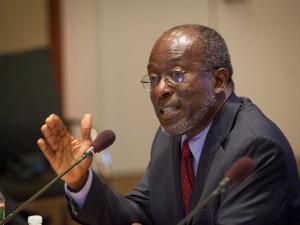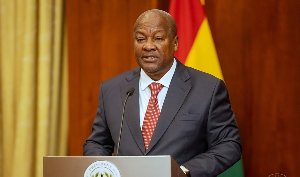The African Center for Economic Transformation (ACET) has urged government to pursue growth built on deep and solid foundations of Diversification, Export competitiveness, Productivity increase, Technology upgrading, and Human wellbeing improvements (DEPTH).
Dr Yaw Ansu, Chief Economics, ACET, said pursuing growth with DEPTH agenda would depend on the private sector, which leads in economic production and trade.
However, he said, the government has a critical role to play in providing key public services, a policy and institutional environment that enables the private sector to thrive and to gain access to new technologies and external markets.
He said one of the most important ways in which government could fulfill this role was through the effective management of public expenditure – directed efficiently at activities that had great impact on promoting economic transformation.
Dr Ansu was delivering the Second Kwadwo Baah-Wiredu Memorial Lecture on Wednesday in Accra on the theme: “Public Expenditure Management for Economic Transformation.”
He said what would take Ghana beyond its shallow growth is firstly “we must diversify what we produce and export. In particular, we must industrialize and raise the share of manufacturing in our gross domestic products and export.”
Secondly, he stated that government must raise export competitiveness to boost foreign exchange to import the technology and machinery needed to industrialize and the goods and services that cannot be produced competitively.
“Thirdly, we must raise Productivity, in all sectors of our economy, particularly in agriculture. Fourthly, we must upgrade our Technology as an important part of raising productivity and moving into the production and competitive export of new goods and services,” Dr Ansu observed.
He pointed out that each of the steps outlined above must lead to improvements in Human well-being; which means more productive jobs and higher personal incomes.
“We need to re-double our efforts to re-make Ghana’s economy. We know what this requires: faster growth and structural transformation,” he said.
The Chief Economist said Ghana’s growth performance over the last 15 years had been respectable – an annual average of about six per cent; “however, if we maintain this same rate with our population growing at 2.1 per cent a year, it will take us almost two decades to double per capita incomes. This is too long. We need to grow faster.”
“But growth alone is not enough. We also need to transform the structure of our economy. The growth we have experienced has been based mainly on some improvements in the economic policy environment, such as greater space for the private sector participation; on high commodity prices; and lately, on the production and export of crude oil,” he added.
Dr Ansu said in the year 2000, the share of manufacturing in Ghana’s GDP was about 10 per cent, but now it is around seven per cent; and by comparison, the Africa average is nine per cent and the developing country average is 11 per cent.
He said almost all countries that had successfully transformed their economies went through decades during which the share of manufacturing in the Gross Domestic Product was 20 per cent or more.
He described the late Kwadwo Baah-Wiredu as an exemplary Ghanaian; an admirable public figure and a very decent man whose life and work were tragically cut short.
Professor K. B. Omane-Antwi, President, Institute of Chartered Accountants Ghana, who chaired the function, said in his opinion, the governance model and ideology we should adopt is simply “economy first before politics and culture”.
Business News of Saturday, 6 June 2015
Source: GNA













